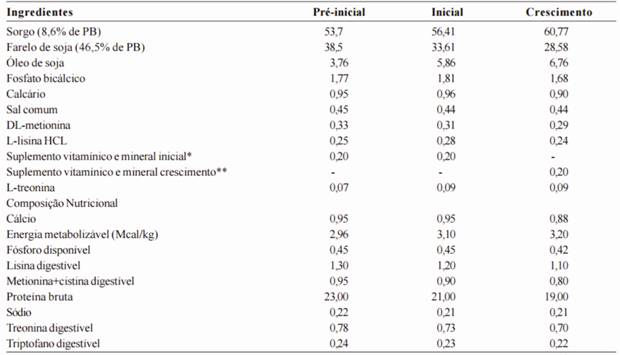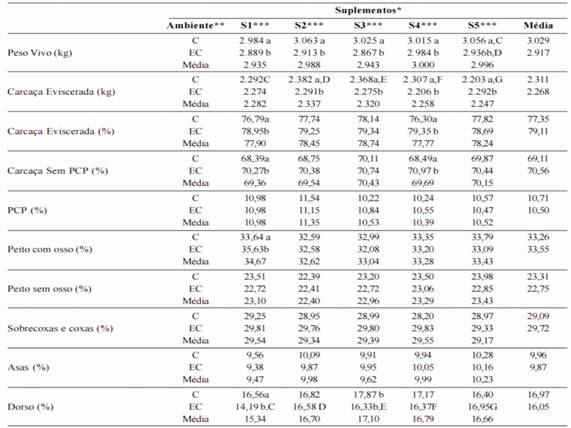Broilers raised under heat stress can have reduced antioxidant standard, however supplementation with zinc and selenium can mitigate this effect.In this study, we evaluated the effects of zinc and selenium supplementation, in the organic and inorganic forms, on performance, lipid peroxidation and carcass yield of broilers subjected to cyclic heat stress (HS). A total of 2400 one-day-old male chicks were raised in thermal comfort until the 14th day, then 1200 chicks were subjected to HS. The experiment was arranged in a completely randomized design in a 2 x 5 factorial with 2 environmental conditions [comfort (C) and HS] and 5 supplementation levels [S1) control diet; S2) S1 + 40 mg / kg of inorganic Zn; S3) S1 + 40 mg/kg of organic Zn; S4) S1 + 40 mg / kg of inorganic Zn and 0.2 mg / kg organic selenium and S5) S1 + 40 mg / kg of organic Zn and 0.2 mg / kg selenium organic], totalling 10 treatments with 8 replicates of 30 birds each. The variables evaluated were blood levels of thiobarbituric acid reactive substances (TBARS), cloacal temperature (CT), weight gain, feed intake, feed conversion, live weight and carcass yield and cuts. On the 35th and 42nd days, HS broilers showed increased cloacal temperature. Weight gain, feed conversion and eviscerated carcass were negatively influenced by heat. Environment and supplement levels did not affect breast meat yield with and without bone, drumstick, thigh, and wing. In the environmental and nutritional conditions of this study, there was no need for supplemental addition of organic and inorganic zinc and organic selenium.
poultry; carcass yield; performance; minerals; lipidic peroxidation; TBARS; body temperature





